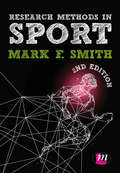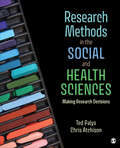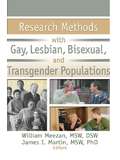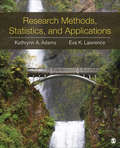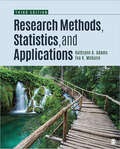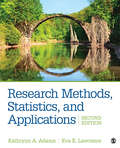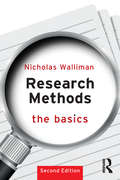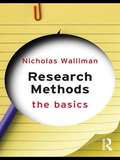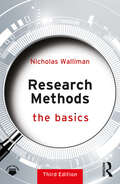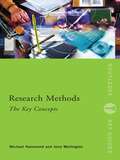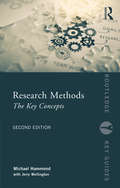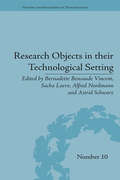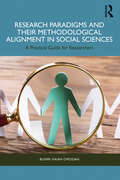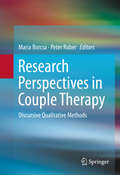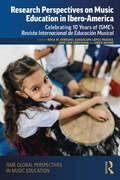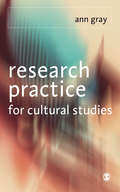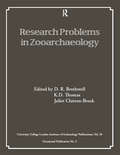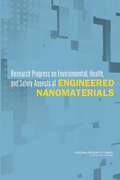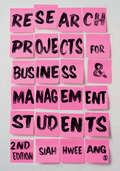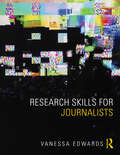- Table View
- List View
Research Methods in Sport (Active Learning in Sport Series)
by Mark SmithPacked full of essential tools and tips, this second edition is your quick-start guide to undertaking research within real world of sport. Using clear, accessible language, Smith maps an easy-to-follow journey through the research process, drawing upon the most up-to-date evidence and resources to help you select the most appropriate research approach for your project. Throughout the book you will discover: Key points that highlight important definitions and theories; Reflection points to help you make connections between key concepts and your research; Learning activities to put your newfound knowledge into practice; Further reading to explore the wider context of sport research in the real world. Featuring over thirty-five case studies of students’ and academics’ research in practice, this book is the perfect guide-by-your-side to have during your own sport research.
Research Methods in the Social Sciences (Seventh Edition)
by Chava Frankfort-Nachmias David NachmiasResearch Methods in the Social Sciences offer a comprehensive, systematic presentation of the scientific approach within the context of the social sciences. The text, together with the supporting materials, will help readers move through the major stages of the research process.
Research Methods in the Social and Health Sciences: Making Research Decisions
by Ted Palys Chris AtchisonResearch Methods in the Social and Health Sciences: Research Decisions, by Ted Palys and Chris Atchison, gives students a thorough, thoughtful, and highly readable introduction to the entire research process from start to finish. From its underlying premise that your research questions and objectives, rather than any specific method, should guide your research, this book discusses each step of the research process, from limiting the scope of a literature review to navigating ethical considerations to deciding which methods are best suited for finding answers to specific research questions to how to analyze data and present findings. Readers are encouraged to think deeply about each step of the research process. The book promotes this deliberation by discussing the strengths and limitations of different methods and. Throughout the process, the authors provide many examples from their own and student research, sharing insights for research decisions arising from that experience. Readers will develop the skills to create solid research questions, perform literature reviews, identify appropriate data sources and methods, conduct research, analyze and interpret data and translate the resulting knowledge generated from the research process to a wider audience– all core parts of the research process –by developing their knowledge and creating confidence in their own decision-making skills. After explaining the unique and often complementary strengths of qualitative and quantitative methods, students focus on what methods are best suited for finding answers to the research questions that interest them. Major types of research including experiments, case studies, surveys, quasi-experiments, ethnographies, focus groups, participatory action research, and archival studies all receive significant coverage. The text illustrates how these methods are enhanced by integrating them with 21st century technologies and combining them in mixed methods projects. Chapters on constructing a research proposal and disseminating research bookend the process with concrete steps in between to support students designing their own original research projects. Study questions at the end of each chapter encourage students to think critically about the research process and how the choices a researcher makes will broaden or constrain what they can find. By the end of the text, social and health science students will feel confident in undertaking ethical and thoughtful research.
Research Methods in the Social and Health Sciences: Making Research Decisions
by Ted Palys Chris AtchisonResearch Methods in the Social and Health Sciences: Research Decisions, by Ted Palys and Chris Atchison, gives students a thorough, thoughtful, and highly readable introduction to the entire research process from start to finish. From its underlying premise that your research questions and objectives, rather than any specific method, should guide your research, this book discusses each step of the research process, from limiting the scope of a literature review to navigating ethical considerations to deciding which methods are best suited for finding answers to specific research questions to how to analyze data and present findings. Readers are encouraged to think deeply about each step of the research process. The book promotes this deliberation by discussing the strengths and limitations of different methods and. Throughout the process, the authors provide many examples from their own and student research, sharing insights for research decisions arising from that experience. Readers will develop the skills to create solid research questions, perform literature reviews, identify appropriate data sources and methods, conduct research, analyze and interpret data and translate the resulting knowledge generated from the research process to a wider audience– all core parts of the research process –by developing their knowledge and creating confidence in their own decision-making skills. After explaining the unique and often complementary strengths of qualitative and quantitative methods, students focus on what methods are best suited for finding answers to the research questions that interest them. Major types of research including experiments, case studies, surveys, quasi-experiments, ethnographies, focus groups, participatory action research, and archival studies all receive significant coverage. The text illustrates how these methods are enhanced by integrating them with 21st century technologies and combining them in mixed methods projects. Chapters on constructing a research proposal and disseminating research bookend the process with concrete steps in between to support students designing their own original research projects. Study questions at the end of each chapter encourage students to think critically about the research process and how the choices a researcher makes will broaden or constrain what they can find. By the end of the text, social and health science students will feel confident in undertaking ethical and thoughtful research.
Research Methods with Gay, Lesbian, Bisexual, and Transgender Populations
by William Meezan James I. MartinTake an in-depth look at what works-and what doesn't-in research with GLBT populations! This essential book examines the usefulness of current frameworks for research with GLBT populations and highlights the necessity for greater complexity in the conceptualization and design of research with these populations. It will help you understand the need for more inclusive and representative samples and the need to protect the privacy of GLBT research participants-and ways to accomplish these goals. In addition, Research Methods with Gay, Lesbian, Bisexual, and Transgender Populations considers the advantages and limitations of having an "inside" perspective when conducting research with these populations. It also explores the myriad ways in which this research can be used to better understand issues facing GLBT communities. Specifically, Research Methods with Gay, Lesbian, Bisexual, and Transgender Populations discusses: eight strategies that "outsiders" can use to overcome barriers to doing their work the challenges of finding and studying older members of gay and lesbian communities the special challenges that studying gay drug users pose to the researcher factors affecting research with urban Black and African-American GLBT populations sampling issues, including ways to overcome the challenges of conducting research with sexual minority adolescents, issues related to dealing with institutional review boards, and lessons derived from empirical articles in the Journal of Gay & Lesbian Social Services unique features of AIDS service organizations to consider when developing an evaluation strategy ethical standards for research and evaluation with GLBT populations and a great deal more! From the Foreword, by Anthony R. D'Augelli: "In social science research, the effort to extract durable principles of social causality from the apparent randomness of everyday life requires the construction of reliable, if tentative, knowledge that is significantly more informative than mere speculation. With our ever-increasing knowledge base, increasingly sophisticated and powerful quantitative and qualitative methodologies, and with an ever-expanding cadre of researchers, our ability to discern patterns of development of GLBT people from birth to death, the unique qualities of their relationships, and the impact of communities and cultures on the ways in which their sexualities are manifested, will come into sharper focus. In this way, research becomes a tool by which GLBT people transcend invisibility and marginalization. As new research accumulates, the unique contributions that GLBT lives make to our understanding of the nature of human development will be documented in ways never before thought possible. "Within the larger context of social science research on GLBT populations, this book describes the current status of social service researchers in their quest for methodological sophistication and conceptual complexity. The work of the contributors to this volume exemplifies the progress that has been made since the first research reports on this topic were published."
Research Methods, Statistics, and Applications
by Kathrynn A. Adams Eva K. LawrenceResearch Methods, Statistics, and Applications, by Kathrynn A. Adams and Eva K. Lawrence, is designed to introduce students to conducting and analyzing research. This engaging book consistently integrates research methods and statistics, allowing students to learn concurrently about different research designs and the appropriate statistics to use when analyzing data. Numerous examples and practical applications help readers gain interest in the material while diminishing the anxiety students experience while taking this course. In every chapter, the authors develop and apply research topics and examples from the current research literature across all aspects of the research process. Using conversational language, the text prepares students for both graduate work and for critical analysis of research as professionals and informed citizens.
Research Methods, Statistics, and Applications
by Kathrynn A. Adams Eva Kung McGuire (aka: Lawrence)Research Methods, Statistics, and Applications by Kathrynn A. Adams and Eva K. McGuire is designed to give students the experience of being a researcher by combining the interrelated concepts of research methods and statistics to better explain how the research process incorporates both elements. Employing a conversational tone throughout, coupled with an emphasis on decision-making, this best-selling text will spark students’ interest in conducting research and improve their ability to critically analyze research in their daily lives. The Third Edition includes a new chapter on measurement to better highlight its critical importance, updates for the 7th edition of the Publication Manual of the American Psychological Association, new examples related to social justice, additional sections on qualitative research methods, and more thorough integration of research ethics information and tips throughout each chapter.
Research Methods, Statistics, and Applications
by Kathrynn A. Adams Eva Kung McGuire (aka: Lawrence)Research Methods, Statistics, and Applications by Kathrynn A. Adams and Eva K. McGuire is designed to give students the experience of being a researcher by combining the interrelated concepts of research methods and statistics to better explain how the research process incorporates both elements. Employing a conversational tone throughout, coupled with an emphasis on decision-making, this best-selling text will spark students’ interest in conducting research and improve their ability to critically analyze research in their daily lives. The Third Edition includes a new chapter on measurement to better highlight its critical importance, updates for the 7th edition of the Publication Manual of the American Psychological Association, new examples related to social justice, additional sections on qualitative research methods, and more thorough integration of research ethics information and tips throughout each chapter.
Research Methods, Statistics, and Applications: Adams: Research Methods, Statistics, And Applications + Sage Ibm® Spss® Statistics V23. 0 Student Version
by Kathrynn A. Adams Eva K. LawrenceThis updated Second Edition of Research Methods, Statistics, and Applications consistently integrates methods and statistics to prepare students for both graduate work and critical analysis of research as professionals and informed citizens. Maintaining the conversational writing style, multiple examples, and hands-on applications of key concepts that made the first edition so accessible, Kathrynn A. Adams and Eva K. Lawrence enhance the new edition with additional coverage of online data collection, inferential statistics, and regression and ANOVA, as well as a wide range of diverse examples. In every chapter, the authors develop and apply research topics and examples from the current research literature across all aspects of the research process. New to this Edition New diverse examples from current research literature in criminal justice, politics, education, and counseling expose students to different research designs in the social sciences and demonstrate commonalities. New chapter-ending The Big Picture sections with appropriate charts and tables encourage students to consider decisions about specific statistical analyses. Two separate chapters (Inferential Statistics and Comparing Your Sample to a Known or Expected Score) now allow instructors to focus on the theoretical concepts associated with inferential statistics before introducing each specific inferential statistic to enhance student understanding. Expanded coverage of inferential statistics includes more discussion of APA guidelines for appropriate statistics and more focus on effect sizes and confidence intervals. New consistent headings make it easy for students to quickly locate information and for instructors to identify sections they may wish to focus on, skip, or present in a different order.
Research Methods, Statistics, and Applications: Adams: Research Methods, Statistics, And Applications + Sage Ibm® Spss® Statistics V23. 0 Student Version
by Kathrynn A. Adams Eva K. LawrenceThis updated Second Edition of Research Methods, Statistics, and Applications consistently integrates methods and statistics to prepare students for both graduate work and critical analysis of research as professionals and informed citizens. Maintaining the conversational writing style, multiple examples, and hands-on applications of key concepts that made the first edition so accessible, Kathrynn A. Adams and Eva K. Lawrence enhance the new edition with additional coverage of online data collection, inferential statistics, and regression and ANOVA, as well as a wide range of diverse examples. In every chapter, the authors develop and apply research topics and examples from the current research literature across all aspects of the research process. New to this Edition New diverse examples from current research literature in criminal justice, politics, education, and counseling expose students to different research designs in the social sciences and demonstrate commonalities. New chapter-ending The Big Picture sections with appropriate charts and tables encourage students to consider decisions about specific statistical analyses. Two separate chapters (Inferential Statistics and Comparing Your Sample to a Known or Expected Score) now allow instructors to focus on the theoretical concepts associated with inferential statistics before introducing each specific inferential statistic to enhance student understanding. Expanded coverage of inferential statistics includes more discussion of APA guidelines for appropriate statistics and more focus on effect sizes and confidence intervals. New consistent headings make it easy for students to quickly locate information and for instructors to identify sections they may wish to focus on, skip, or present in a different order.
Research Methods: 2nd edition (The Basics)
by Nicholas WallimanResearch Methods: The Basics is an accessible, user-friendly introduction to the different aspects of research theory, methods and practice. This second edition provides an expanded resource suitable for students and practitioners in a wide range of disciplines including the natural sciences, social sciences and humanities. Structured in two parts – the first covering the nature of knowledge and the reasons for research, the second the specific methods used to carry out effective research and how to propose, plan, carry out and write up a research project – this book covers: • Reasons for doing a research project• Structuring and planning a research project• The ethical issues involved in research• Different types of data and how they are measured• Collecting and analysing qualitative and quantitative data in order to draw sound conclusions• Mixed methods and interdisciplinary research• Devising a research proposal and writing up the research• Motivation and quality of work. Complete with a glossary of key terms and guides to further reading, this book is an essential text for anyone coming to research for the first time.
Research Methods: The Basics
by Nicholas WallimanResearch Methods: The Basics is an accessible, user-friendly introduction to the different aspects of research theory, methods and practice. Structured in two parts, the first covering the nature of knowledge and the reasons for research, and the second the specific methods used to carry out effective research, this book covers: Structuring and planning a research project The ethical issues involved in research Different types of data and data quality Analysing and organising data to draw sound conclusions Writing up and displaying data in effective ways @text:Complete with a glossary of key terms and guides to further reading, this book is an essential text for anyone coming to research for the first time, and is widely relevant across the social sciences and humanities.
Research Methods: The Basics (The Basics)
by Nicholas WallimanResearch Methods: The Basics is an accessible, user-friendly introduction to the different aspects of research theory, methods and practice. This third edition provides an expanded and fully updated resource suitable for students and practitioners in a wide range of disciplines including the natural sciences, social sciences and humanities. It is structured in two parts – the first covers the nature of knowledge and the reasons for doing research, the second explains the specific methods used to conduct an effective research project and how to propose, plan, carry out and write up a research project. This book covers: • Reasons for doing a research project• Structuring and planning a research project• The ethical issues involved in research• Different types of data and how they are measured• Collecting primary and secondary data• Analysing qualitative and quantitative data• Mixed methods and interdisciplinary research• Devising a research proposal and writing up the research• Motivation and quality of work. Complete with student learning tasks at the end of each section, a glossary of key terms and guides to further reading, Research Methods: The Basics is the essential text for anyone coming to research for the first time. New to this edition is free access to a set of digital resources. This contains case studies, to- do lists, quizzes on aspects of research related to the chapters in the book and useful PowerPoint presentations for lecturers. To access the online material, go to www.routledge.com/9780367694081 and click on ‘Support Material’ beneath the illustration of the front cover.
Research Methods: The Key Concepts (Routledge Key Guides)
by Jerry Wellington Michael HammondThis invaluable resource provides a comprehensive overview of the many methods and methodologies of social research. Each entry provides a critical definition and examines the value and difficulties of a particular method or methodology of concept across different fields of social research. Concepts include: Action research Chaos theory Discourse analysis Epistemology Literature review Interviewing Social constructivism World view With thematic further reading stretching across the social sciences, Research Methods: The Key Concepts will help readers develop a firm understanding of the rationale and principles behind key research methods, and is a must-have for new researchers at all levels, from undergraduate to postgraduate and beyond.
Research Methods: The Key Concepts (Routledge Key Guides)
by Jerry Wellington Michael HammondThis book provides an overview of ninety key concepts which often trouble those who are new to researching within the social sciences. It covers theories of knowledge, methodologies and methods. Each entry offers a definition of a concept, shows how researchers have used that concept in their research and discusses difficulties that the concept presents. The book supports those undertaking their own social research projects by providing detailed critical commentary on key concepts in a particularly accessible way. In exploring these concepts, a wide range of research reports across many different fields are described. These include not only classic accounts, but also a broad selection of recent studies, some written by new researchers. The book will be useful for higher-education students carrying out projects within social science faculties at the end of their first degree or during a master's programme, though it will also be helpful for those undertaking doctoral research, and some entries have been written with the production of a thesis in mind. This second edition of Research Methods: The Key Concepts provides a more comprehensive and up-to-date coverage, as old entries have been updated and 19 new entries added. It helps new researchers to navigate the changing landscape of social research by recognising a) the changes in the ways researchers are thinking about knowledge and acquiring knowledge, b) the increasing use of digital tools to collect data, and c) the desire many contemporary researchers feel to promote social justice through their research.
Research Objects in their Technological Setting (History and Philosophy of Technoscience)
by Alfred Nordmann Astrid Schwarz Sacha Loeve Bernadette Bensaude VincentWhat kind of stuff is the world made of? What is the nature or substance of things? These are ontological questions, and they are usually answered with respect to the objects of science. The objects of technoscience tell a different story that concerns the power, promise and potential of things – not what they are but what they can be. Seventeen scholars from history and philosophy of science, epistemology, social anthropology, cultural studies and ethics each explore a research object in its technological setting, ranging from carbon to cardboard, from arctic ice cores to nuclear waste, from wetlands to GMO seeds, from fuel cells to the great Pacific garbage patch. Together they offer fascinating stories and novel analytic concepts, all the while opening up a space for reflecting on the specific character of technoscientific objects. With their promise of sustainable innovation and a technologically transformed future, these objects are highly charged with values and design expectations. By clarifying their mode of existence, we are learning to come to terms more generally with the furniture of the technoscientific world – where, for example, the 'dead matter' of classical physics is becoming the 'smart material' of emerging and converging technologies.
Research Paradigms and Their Methodological Alignment in Social Sciences: A Practical Guide for Researchers
by Bunmi Isaiah OmodanResearch Paradigms and Their Methodological Alignment in Social Sciences is a comprehensive guide addressing the common conceptions surrounding research paradigms. This practical book demystifies complex concepts, giving researchers a nuanced understanding of the significance of research paradigms. It offers detailed insights, examples, and strategies for selecting and applying appropriate research methods, aiming to enhance the rigour and impact of scholarly work.This insightful guide meticulously explores the intricacies of research paradigms in the social sciences. It begins by unravelling the concept and historical development of research paradigm, emphasising its pivotal role in shaping the research process. The book elucidates major research paradigms, including positivism, interpretivism, transformative paradigm, postcolonial indigenous paradigm, and pragmatism. Each paradigm is dissected, unveiling philosophical underpinnings, methodological designs, and critical considerations. The chapters carefully align research questions with specific paradigms through illustrative case studies, offering practical guidance for researchers at all levels. Notably, the transformative paradigm and postcolonial indigenous perspective receive dedicated attention, addressing their unique methodological nuances and ethical dimensions. The exploration extends to pragmatism, seamlessly integrating theoretical foundations with real-world applications. The book strives to bridge the awareness gap in academic settings, fostering a profound appreciation for research paradigms and promoting a thoughtful, rigorous approach to scholarly inquiry.This book caters to students, novice and experienced researchers, offering a comprehensive understanding of research paradigms. It's valuable for academia, aiding undergraduate and postgraduate students, educators, and researchers in various disciplines. Research organisations, academic institutions, and professionals in diverse fields engaged in research and development will also find it a valuable resource.
Research Perspectives in Couple Therapy
by Maria Borcsa Peter RoberIn this powerful volume, six qualitative methods are used to analyze a couple therapy with a troubled young couple, illustrating the intricate processes and sub-processes of therapy through client interactions with their therapists and with each other. Increasingly popular for revealing the nuances and complexity of human interactions, qualitative approaches focus on process and discursive methods which can be particularly rewarding in multi-client settings. Through the examples that make up the text, practitioners and researchers become better acquainted with the power of qualitative perspectives and are encouraged to examine their own views on therapy as they consider these and other concepts: The development of dialogical space in a couple therapy session. Introducing novelties into therapeutic dialogue: the importance of minor shifts of the therapist. Therapists' responses for enhancing change through dialogue: dialogical investigations of change. Fostering dialogue: exploring the therapists' discursive contributions in a couple therapy. Dominant story, power, and positioning. Constructing the moral order of a relationship in couples therapy. Research Perspectives in Couple Therapy: Discursive Qualitative Methods ably demonstrates the balance between therapeutic art and science for family and couples therapists, psychologists, and other mental health professionals in research and practice.
Research Perspectives on Music Education in Ibero-America: Celebrating 10 Years of ISME’s Revista Internacional de Educación Musical (ISME Series in Music Education)
by Gwen Moore Guadalupe López-Íñiguez José Luis Aróstegui Rosa M. SerranoThis volume brings together a selection of essential articles from the journal Revista Internacional de Educación Musical (RIEM), a Spanish-language journal published by the International Society for Music Education, making this work available to an English-speaking audience for the first time. With chapters representing a wide range of countries in the Ibero-American world, including Argentina, Brazil, Chile, Colombia, Mexico, Portugal, and Spain, the book aims to develop international exchange in the music education community. The book is structured around key themes, including music teacher training, youth music education, higher music education, and sociomusical programs, with a focus on opportunities for improvement across music education contexts inside and outside schools. Making vibrant research and practice from across the region available to a wider international audience, this book facilitates exchanges between researchers and educators and enhances global music education studies by highlighting groundbreaking work from Spanish- and Portuguese-speaking countries.
Research Practice for Cultural Studies: Ethnographic Methods and Lived Cultures
by Dr Ann Gray'This is an Excellent textbook and a valuable addition to the growing field of 'how to' books providing advice and guidance for practitioners and students wishing to undertake fieldwork of an ethnographic nature.... this books deserves to be high on your reading list' - Active Learning in Higher Education `Gray's book tells us an important story, starting from the epistemological and methodological background of a number of key studies in the Birgmingham tradition, it explores how to make use of these research experiences and how to deploy "experience" as a tool for research' - Roberta Sassatelli, School of Economic and Social Studies, University of East Anglia How is culture `lived'? What are the best ways of investigating cultural life? This timely, assured and accessible book has three objectives. First, it seeks to give a critical selective account of the main ethnographic methods that have influenced cultural studies. Second, it offers practical guidance on the craft of research, from formulating a topic to presenting it in written form. Third, it provides help with key questions of evaluative criteria and values in the research process. This is one of the first cultural studies books to address the question of the research process in detail. Students who want to do empirical research will find the book to be an indispensable resource that will enable them to focus on the correct issues and ask the right questions for effective research. The book develops a set of research practices that are appropriate to a critical understanding of culture, power and everyday life. It will rapidly establish itself as the lecturer's stand-by and the student's friend for all issues relating to qualitative research in cultural studies.
Research Problems in Zooarchaeology (UCL Institute of Archaeology Publications)
by D.R. Brothwell, K.D. Thomas and Juliet Clutton-BrockPapers from an important conference on zooarchaeology, reflecting state-of-the-art work on the study of human relationship to animals in ancient times.
Research Progress on Environmental, Health, and Safety Aspects of Engineered Nanomaterials
by Toxicology Committee to Develop a Research Strategy for Environmental StudiesDespite the increase in funding for research and the rising numbers of peer-reviewed publications over the past decade that address the environmental, health, and safety aspects of engineered nanomaterials (ENMs), uncertainty about the implications of potential exposures of consumers, workers, and ecosystems to these materials persists. Consumers and workers want to know which of these materials they are exposed to and whether the materials can harm them. Industry is concerned about being able to predict with sufficient certainty whether products that it makes and markets will pose any environmental, health or safety issues and what measures should be taken regarding manufacturing practices and worldwide distribution to minimize any potential risk. However, there remains a disconnect between the research that is being carried out and its relevance to and use by decision-makers and regulators to make informed public health and environmental policy and regulatory decisions. "Research Progress on Environmental, Health, and Safety Aspects of Nanomaterials" evaluates research progress and updates research priorities and resource estimates on the basis of results of studies and emerging trends in the nanotechnology industry. This report follows up the 2012 report "A Research Strategy for Environmental, Health, and Safety Aspects of Engineered Nanomaterials," which presented a strategic approach for developing the science and research infrastructure needed to address uncertainties regarding the potential environmental, health, and safety risks posed by ENMs. This new report looks at the state of nanotechnology research, examines market and regulatory conditions and their affect on research priorities, and considers the criteria for evaluating research progress on the environmental, health, and safety aspects of nanotechnology.
Research Projects for Business & Management Students
by Siah Hwee AngThis second edition of Research Projects for Business and Management Students provides students undertaking extended research with a foundation upon which to build their practice. The author sets out each stage of a research project systematically to allow you to follow along and build an understanding of the processes involved in carrying out in depth pieces of research, as well as the functions of commonly used research methods. Conversation boxes throughout will also help situate your learning by providing examples of commonly asked questions, challenges that may occur while you carry out your research and guidance on how to answer them. Professor Siah Hwee Ang is Professor of International Business and Strategy, inaugural Chair in Business in Asia and Director of the NZ’s Southeast Asia Centre of Asia-Pacific Excellence at Victoria University of Wellington, New Zealand.
Research Projects for Business & Management Students
by Siah Hwee AngThis second edition of Research Projects for Business and Management Students provides students undertaking extended research with a foundation upon which to build their practice. The author sets out each stage of a research project systematically to allow you to follow along and build an understanding of the processes involved in carrying out in depth pieces of research, as well as the functions of commonly used research methods. Conversation boxes throughout will also help situate your learning by providing examples of commonly asked questions, challenges that may occur while you carry out your research and guidance on how to answer them. Professor Siah Hwee Ang is Professor of International Business and Strategy, inaugural Chair in Business in Asia and Director of the NZ’s Southeast Asia Centre of Asia-Pacific Excellence at Victoria University of Wellington, New Zealand.
Research Skills for Journalists
by Vanessa EdwardsResearch Skills for Journalists is a comprehensive, engaging and highly practical guide to developing the varied skillset needed for producing well researched, quality journalism across a range of platforms. Illustrated with original interviews and case studies, the book guides readers through a clear understanding of sources of news, as well as illustrating the skills needed to undertake successful digital and non-digital research and to conduct interviews for a variety of media. It examines the skills needed for basic data journalism and presents an in-depth exploration of the different research skills specific to producing print and online text, as well as those for broadcast and multimedia journalism. Key research skills explored in the book include: Developing digital research skills, including researching through search engines, messages boards, discussion groups and web forums, social media, apps, and using user generated content Working with data, including sourcing, auditing and analysing data, data visualisation and understanding the importance of accuracy and context Essential non-digital research skills, including telephone technique, using libraries and working with librarians, understanding copyright, working with picture libraries and research services, and producing freedom of information requests Working directly with people to research stories, including the power of persuasion, tracking down great contributors, managing and protecting sources, planning and managing interviews, and interviewing vulnerable people Researching for multimedia production of stories, including researching a radio story, podcast or video story, and planning for outside broadcasts. Research Skills for Journalists also explores specialist research skills needed for working overseas and investigates new areas, which could be used for journalism research in the future. The book is illustrated with original contributions by journalists from a variety of backgrounds; including veteran investigative journalist John Pilger, pioneering data journalist Simon Rogers and The Bureau of Investigative Journalism’s award-winning reporter Abigail Fielding-Smith. It is an invaluable guide for students and practitioners of journalism to the skills needed for finding and developing original news stories today.
